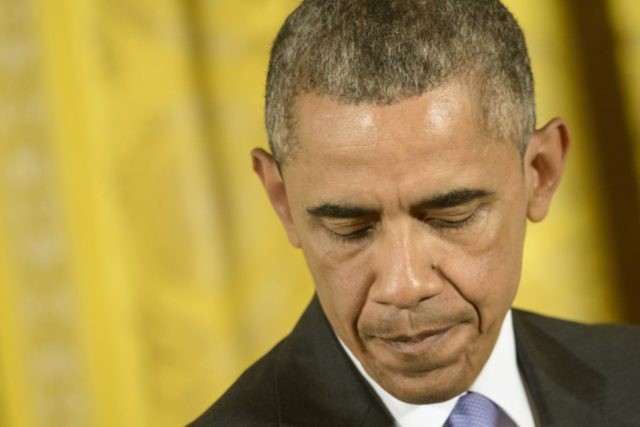How is it that President Barack Obama’s approval ratings have been so favorable of late, now cracking 50 percent?
Surely it’s not because he paid ransom to free four Americans held hostage in Tehran and then evidently dissembled about it?
“We do not pay ransom. We didn’t here, and we won’t in the future,” he told reporters two weeks ago referring to the January 17 U.S. Government $400 million in cash paid to the Islamic Republican of Iran. The cash was stuffed in an unmarked plane that arrived in Tehran in the dead of night just before American hostages were released.
But, yesterday, State Department spokesman Admiral John Kirby admitted it was a cash for hostages swap. (Though Kirby semantically called it “leverage” today on “Morning Joe.”)
“In basic English,” a reporter asked him, “you’re saying you wouldn’t give them $400 million in cash until the prisoners were released, correct?”
“That’s correct,” Kirby said.
And, mind you, the hostages released were not the same four that, in July 2015, Americans were crying foul over because the Iran nuclear deal failed to include them. Remember CBS Chief White House Correspondent Major Garrett asking President Obama how he could be “content” given this glaring oversight and the president bristling?
The list then was: Washington Post journalist Jason Rezaian, former U.S. Marine Amir Hekmati, Pastor Saeed Abedini and former FBI agent Robert Levinson.
The first three were released in January along with another American who chose to stay in Iran. But, not Levinson. He still languishes away.
It seems $400 million cold ransom cash will only get you so far.
And, while the cash transaction with Iran is bad enough, given that it is against U.S. law, the ransom has clearly emboldened Iran to take more hostages—at least three so far, who now join Levinson.
But, considering America’s outrage over “The Iran–Contra Affair” during President Ronald Reagan’s second term, we can be confident a special investigation will commence any day now.
That this statement seems patently absurd shows how far our country has sunk. Consider the contrast.
Iran-Contra, for those too old or young to remember, was a scheme in which senior administration officials had a similar idea. Only instead of cash for hostages, it was the sale of arms to Iran, then subject to an arms embargo, for hostages. These officials planned to use the money from the sale to fund the Contras fighting the communist government in Nicaragua, the Boland Amendment having ended this funding.
The Reagan Administration was called to account—big time!
First there was the Tower Commission—a Special Review Board President Reagan announced on November 25, 1986, chaired by former Senator John Tower, also including former Secretary of State Edmund Muskie and former National Security Adviser Brent Scowcroft. Three months later, they delivered their 200-page report based on 80 witness interviews including Reagan and two of the arms trade middlemen. The report criticized the actions of Oliver North, John Poindexter, Caspar Weinberger, and others, but determined President Reagan did not have knowledge about the breadth of the program.
Then there were the congressional committees investigating the affair, complete with Brendan Sullivan’s famous “potted plant” quip. The president was ultimately responsible, the report by the Democratic-controlled Congress said of his administration that showed “secrecy, deception and disdain for the law.” Ultimately, though, given obfuscation, not unlike Hillary’s missing 33,000 emails, and the death of CIA Director William Casey, the record was incomplete.
Reagan expressed regret in a nationally televised address from the Oval Office before the Nation on March 4, 1987 and took full responsibility.
At the depths of Iran-Contra, Reagan’s polls sunk to 40 percent from a high of 71 percent nine months earlier. But after the investigations and his straight talk, his popularity steadily rose to 61 percent by the end of his presidency nine months later.
Ah, the good old days, when polls reflected presidential character.
Mary Claire Kendall is a Washington-based writer and author of Oasis: Conversion Stories of Hollywood Legends. She served four years in the Presidential Administration of George H.W. Bush and has written extensively about the Middle East.

COMMENTS
Please let us know if you're having issues with commenting.